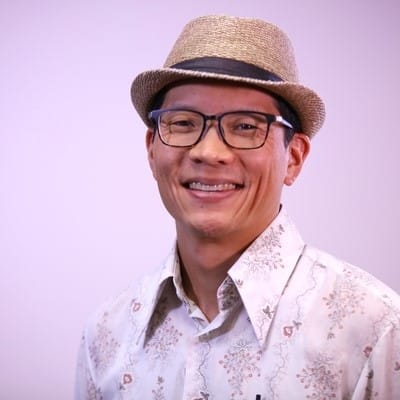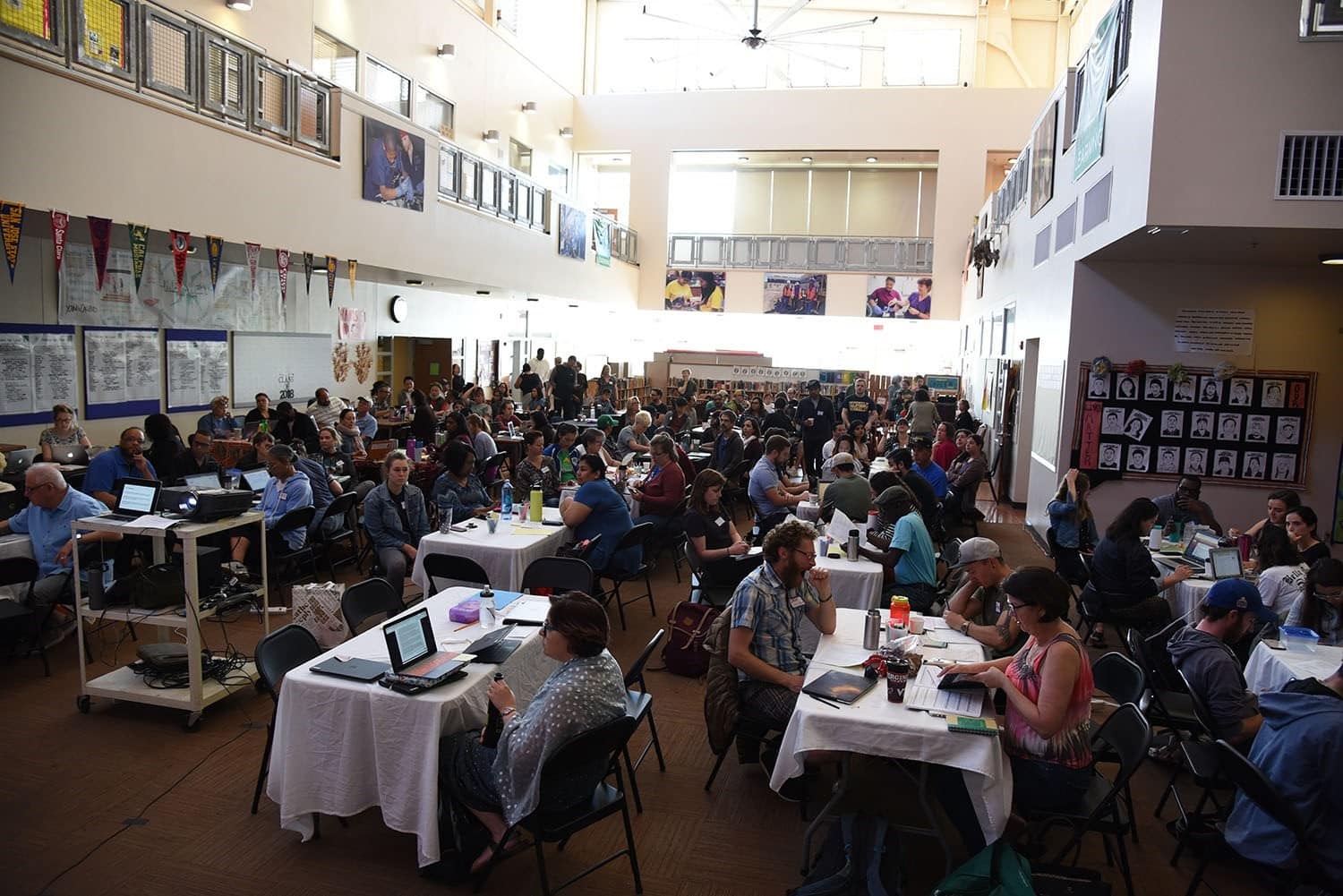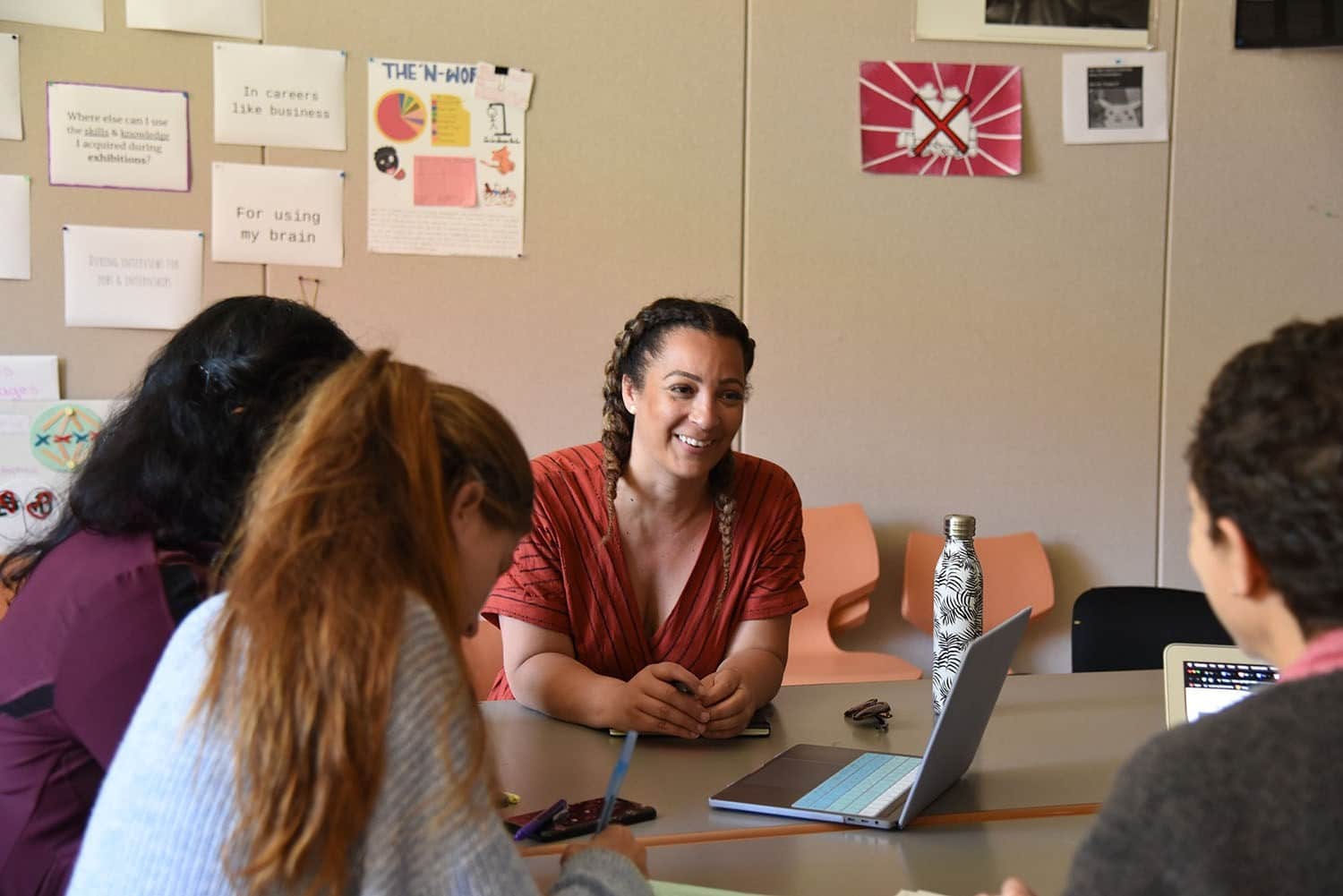Deep Community Partnerships Lead to Authentic Project-Based Learning at Oakland USD
CompetencyWorks Blog
This post originally appeared at Next Generation Learning Challenges on August 27, 2019.
How to create authentic Project-Based Learning? In Oakland Unified, community partners and teachers are working together from the very beginning to design projects.

Teachers are often asked to make sure that their project-based learning (PBL) units are authentic. In response, a teacher might decide to teach a PBL unit where students are putting Christopher Columbus on trial. Doesn’t it sound more exciting than simply learning the facts of the history? They might even ramp up the authenticity points by bringing in a judge or lawyer to preside over the trial.
This “expert audience” approach does add an element of authenticity. Teachers are going above and beyond the traditional curriculum when they bring in a community expert as an audience for student projects.
Teachers in Oakland Unified School District (OUSD), however, are exploring even deeper partnerships with the professional community as a way to ensure that PBL projects are authentic. These partnerships begin at the earliest moments of project design, well before the students set foot in the classroom. There are many inspiring examples of what might be called a “client”-driven model of PBL. San Diego Unified has been scaling these kinds of projects in their Linked Learning schools while here in the bay area, one of the most promising models is Y-PLAN—an initiative out of the Center for Cities and Schools at UC Berkeley. In Y-PLAN, students work on real problems of urban and regional planning.
A recent example from Y-PLAN occurred when students at Oakland High School in the Law and Social Justice Academy worked with an affordable housing developer. They visited the site of the proposed project and then conducted research to find out what the community would like to see in the housing development. For the final presentation, the students created proposals that they shared when the developer came to their classroom.
The key difference in this approach to authentic PBL is that the community partner engages with teachers from the beginning to shape the project. With this goal in mind, OUSD organized a “community partner engagement” day during our weeklong PBL Institute in June. Over 40 different partner organizations and individuals joined 120 middle and high school teachers on the second day of the institute.

Before the teachers showed up, we asked them to give us information on the PBL project they were hoping to plan during the institute and if they already had a community partner that they wanted to work with. Our planning team of seven central office leaders then invited relevant partners like public radio station KQED, Alameda County Public Health Department, Red Bay Coffee, Oakland Public Works, and the Museum of Children’s Art.
On the morning of the “community partner engagement” day, teachers prepared a project pitch composed of three slides—the final product students would create, a driving question, and a key learning outcome. In the afternoon, partners and teachers met to discuss the PBL project idea.

We did not expect partners to commit beyond the 90 minutes that they generously gave us that day. But secretly, we were hoping that they would become excited and invested in the project ideas, and therefore, open to further engagement. To encourage this ongoing partnership, we provided teachers with a thank you email template that included a place for teachers to make additional requests for support.
There was a group of special education teachers from Oakland High School who have been supporting their students to learn workplace readiness skills by running their own small business—a coffee cart on campus. On “community engagement day,” they met with Red Bay Coffee, an Oakland-based coffee roaster.
The Oakland High teachers sent a thank you email that afternoon, requesting a tour. Two days later they visited the coffee roasting facility to see the various skills that their students would need to develop in order to be successful within the diverse employment opportunities at Red Bay. Red Bay even offered to give students the opportunity to work any catering contract that Oakland Unified brought to the company.
Other projects that were jump started that week include students at Life Academy for Health and Bioscience partnering with East Bay Getting to Zero, an organization working to get to zero HIV transmissions. For several years, students at Life had been presenting their proposals for how to address the HIV epidemic in the bay area. With the input of their partner organization, students are now able to focus their research and advocacy on a more relevant question.
A teacher in the Green Academy at Skyline High School met with an environmental engineer at ETIC, an environmental consulting organization in the bay area. The engineer agreed to work with students to show them how to build a model of a bioswale—a landscape design used to filter out pollution from surface runoff water. Students will then propose using bioremediation to improve the quality of water in the San Francisco Bay as well as Lake Merritt. The teacher hopes that the best proposals will be shared with the East Bay Municipal Utility District or Oakland Public Works.
In the end, 64 percent (55/86) of the teachers who responded to the PBL Institute evaluation survey said that they plan to work with a partner that they met that week. If both teachers and partners are invested in a PBL project from the beginning, we are hopeful that these projects will last beyond one cycle. Ongoing projects provide opportunities for learning how to improve both the quality of instruction and the depth of partnership.
OUSD is excited by this vision of deep partnerships that super-inject authenticity into the daily learning of our students. And, we know that making sustainable improvements to student learning requires a commitment of time and resources. To make good on the promise of authentic PBL, we must continue to provide teachers with time to plan and with the support to develop meaningful partnerships.
Learn More
- Supporting Deeper Learning Through High-Quality Internship Projects
- Active Learning through Expeditions and Internships at Four Rivers
- A Conversation with Bob Lenz About Project-Based Learning and CBE
- Sustaining and Sharing Cultural Heritage at the Tatitlek Community School
Young Whan Choi has been a public school teacher in New York City, Providence, RI, and Oakland, CA, during which time he has developed expertise in project-based learning, curriculum design, and school-based internships. Currently, he is Manager of Performance Assessments for Oakland Unified School District where he leads the Ethnic Studies program and supports schools to provide high quality instruction through a performance system aligned to a rigorous and meaningful capstone project. He is the producer and host of The Young and the Woke podcast.
@itsywc https://www.ousd.org/linkedlearning